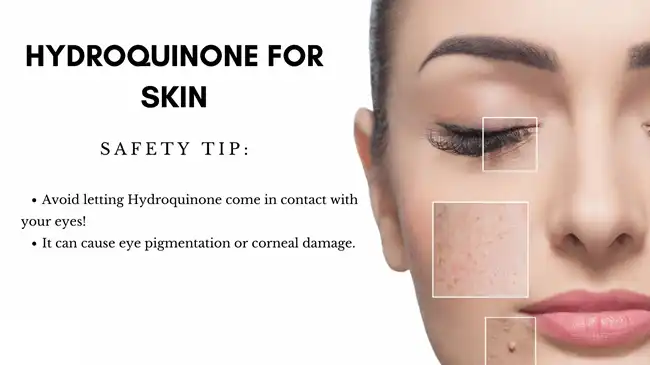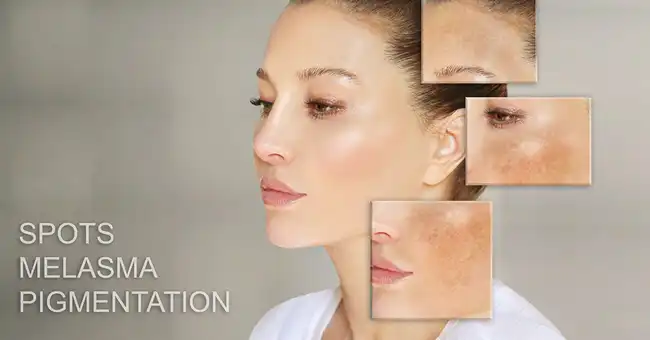Does Hydroquinone Have Side Effects?
2024-07-26 16:01:45
Acclaimed for its efficaciousness in treating hyperpigmentation and uneven skin tone, hydroquinone is a widely used ingredient in numerous skin lightening and anti-aging treatments. However, worries regarding possible negative consequences are frequently present when using it. We'll discuss the hydroquinone side effects in this blog, with a special emphasis on hydroquinone powder. We'll dissect typical queries and worries to provide you with a thorough grasp of this often-used substance.
What Are the Common Side Effects of Hydroquinone?
A common ingredient in cosmetics treatments meant to treat conditions including melasma, dark patches, and hyperpigmentation is hydroquinone. Even though it works well, you should be mindful of any possible negative effects. Here is a detailed examination of the typical hydroquinone adverse effects:
Skin Irritation
One of the most frequently reported side effects of hydroquinone is skin irritation. This can manifest as redness, itching, and peeling of the skin. These symptoms are typically mild and temporary but can sometimes be more pronounced. The irritation occurs because hydroquinone alters the skin’s pigment production, which can disrupt the natural balance and lead to inflammation. In cases of severe irritation, it is essential to reduce the frequency of application or discontinue use and consult a dermatologist for alternative treatments.
Increased Sensitivity to Sunlight
Your skin may become more sensitive to sunlight after using hydroquinone powder, increasing your risk of sunburn and pigmentation problems. Because hydroquinone inhibits the skin's capacity to protect itself from UV radiation, there is an increased sensitivity to light. Consequently, when exposed to sunshine, hydroquinone-treated areas may brown more quickly.
Skin Discoloration
On rare occasions, hydroquinone may cause ochronosis, a condition in which skin darkens instead of lightens. This is frequently the outcome of using hydroquinone excessively or for an extended period of time, especially at high dosages. Ochronosis can be difficult to treat and is characterized by a bluish-black darkening of the skin. It's critical that you see a dermatologist right away if you observe any odd skin discoloration. To address the pigmentation issue, they might advise stopping use and looking into alternative treatment alternatives.

Can Pure Hydroquinone Powder Cause More Severe Reactions?
Compared to the diluted formulations found in commercial products, pure hydroquinone powder may provide different dangers due to its concentrated form of the chemical. A closer look at the possible dangers of pure hydroquinone powder is provided below:
Concentration and Dosage Risks
Because pure hydroquinone is so concentrated, using it incorrectly or in excess can cause serious skin responses. It's critical to utilize the appropriate concentration as advised by a medical professional.
Uncontrolled Application
Since pure powder is harder to measure precisely than commercial solutions, which are designed to ensure controlled application, there is a higher chance of abuse and adverse effects.
Potential for Contamination
When using pure hydroquinone powder, there is a greater chance of contamination from allergies or contaminants. It's essential to handle and store materials properly to prevent adverse responses.
Higher Risk of Ochronosis
The usage of concentrated hydroquinone increases the chance of developing ochronosis, a disorder where the skin turns darker. Usually irreversible, this condition necessitates medical treatment.
When using pure hydroquinone powder, it’s crucial to follow safety guidelines and consult with a professional to avoid these severe reactions.
How Can You Minimize the Side Effects of Hydroquinone?
Hydroquinone, a potent ingredient in skincare products, is well known for its ability to balance out skin tone and lessen hyperpigmentation. But with its effectiveness also comes the necessity to manage any potential side effects. By following certain principles, you can lessen these risks and ensure that using 100 pure hydroquinone powder is safer. This is a comprehensive guide on mitigating adverse effects:
Use as Directed
It's crucial to adhere closely to the recommended dosage and mode of administration when using hydroquinone. Overuse or application of higher concentrations than advised may have unfavorable effects. Follow your dermatologist's or the product label's directions at all times. Avoid using hydroquinone more frequently than prescribed and avoid combining it with other strong medications without first visiting a doctor. This ensures that your skin receives the most benefit and that there are no unnecessary risks.
Conduct a Patch Test
Before administering hydroquinone to skin areas that are more exposed, a patch test must be performed. Place a tiny bit of the product on a private spot, such the inside of your forearm or the back of your ear, and watch for any reactions over the next 24 to 48 hours. By doing this, you may test for any possible sensitivities or allergic reactions before exposing bigger sections of your skin. It is recommended that you stop using the cream and see your dermatologist if redness, irritation, or swelling appear.
Protect Your Skin from Sunlight
Because hydroquinone increases skin sensitivity to sunlight, it might worsen pigmentation problems and cause sunburn. Even on overcast days, protect your skin by using a broad-spectrum sunscreen with an SPF of at least 30. If you're going to go outside, use plenty of sunscreen and reapply it every two hours. Furthermore, you can protect your skin even more and improve the effectiveness of hydroquinone treatments by dressing in protective clothing and finding shade during the hottest parts of the day.
Moisturize Regularly
The skin may occasionally get dry and peel after hydroquinone use. Include an excellent moisturizer in your skincare regimen to offset these effects. Pick a mild, moisturizing moisturizer that isn't scented or has any irritating ingredients. Regular use of moisturizer lowers the likelihood of irritation and enhances overall skin health by supporting the skin's barrier function, hydrating the skin, and relieving dryness.
Regular Dermatological Check-ups
When using hydroquinone, it is imperative that you have regular consultations with your dermatologist. Frequent examinations enable your dermatologist to track how your skin is responding to therapy and modify your regimen as needed. They can help you with any side effects you might encounter and offer advice on how to use it optimally. By avoiding hazards, this continuous professional control guarantees that the treatment continues to be effective.

Xi'an ZB Biotech Co.,Ltd is Hydroquinone powder factory, we can provide Hydroquinone capsules. Our factory also can supply OEM/ODM One-stop service, including customized packaging and labels. If you want to learn more, you can send e-mail to Jessica@xazbbio.com or WhatsAPP+8618591943808.
Conclusion
In conclusion, it's important to be aware of any potential side effects even though hydroquinone is still a popular choice for treating hyperpigmentation and uneven skin tone. Since these risks might range from mild skin irritation to more severe reactions like ochronosis, understanding them is crucial for safe usage. Expert guidance is important since pure hydroquinone powder can present additional risks and problems due to its high concentration of this drug. By using your skincare regimen according to the stated dosage instructions, conducting patch tests, protecting your skin from the sun, and making regular dermatological exams, you can minimize adverse effects and optimize its effectiveness. To be sure hydroquinone is appropriate for your needs and skin type, always seek medical counsel.
For more personalized advice and to address any specific concerns about Pure Hydroquinone Powder, please contact Jessica at Jessica@xazbbio.com.
References
1. American Academy of Dermatology. "Hydroquinone: Uses, Side Effects, and More."
2. Mayo Clinic. "Hydroquinone Cream: How It Works and What to Know."
3. WebMD. "Hydroquinone: How to Use It Safely."
4. Healthline. "Hydroquinone for Hyperpigmentation: Effectiveness and Risks."
5. National Institutes of Health. "Hydroquinone: An Overview of Side Effects and Safe Use."
6. DermNet NZ. "Hydroquinone: Benefits and Risks."
Send Inquiry
You may like
Related Industry Knowledge
- How Long Does Hydroquinone Take to Work?
- What is Omega Fish Oil 3 Good For?
- How to Use Ferulic Acid in Skincare?
- Does Azelaic Acid Cause Purging?
- Can You Take Magnesium Glycinate After Drinking Alcohol?
- What Is Pure Beta Sitosterol?
- When To Take Beta Ecdysterone?
- Is Beta Ecdysterone A Steroid?
- Can You Give a Cat Melatonin?
- What Is Beta-Carotene Powder Used For?


